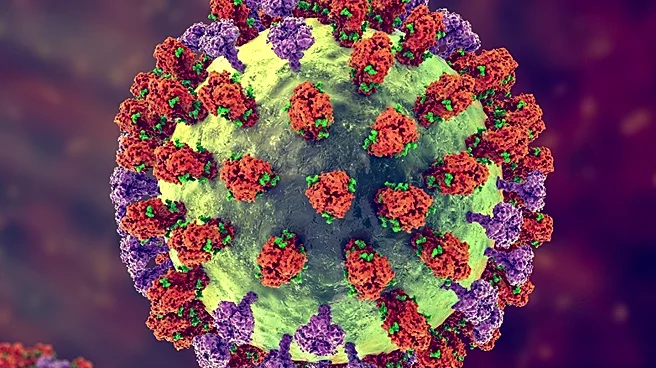What's Happening?
Scientists at Scripps Research have conducted a genome-wide siRNA screening to identify human proteins that SARS-CoV-2 relies on for replication. The study uncovered 32 proteins essential for the early stages of infection and 27 proteins used later, revealing potential drug targets. The research suggests that targeting host proteins could lead to treatments effective against SARS-CoV-2 and other coronaviruses, reducing the risk of drug resistance due to viral mutations. Two proteins, perlecan and BIRC2, emerged as promising targets for drug development. The findings could pave the way for pan-coronavirus therapies, potentially effective against future coronavirus strains.
Why It's Important?
The identification of host proteins critical for SARS-CoV-2 replication offers a new avenue for drug development, focusing on the host rather than the virus itself. This approach could lead to treatments that are less susceptible to resistance caused by viral mutations. By targeting common pathways used by multiple coronaviruses, researchers can develop therapies that may be effective against a range of viruses, including potential future strains. This research is significant in the ongoing effort to combat COVID-19 and prepare for future pandemics, providing a strategic advantage in antiviral drug development.
What's Next?
Researchers plan to explore whether the identified host proteins are also used by other respiratory pathogens such as influenza and RSV. Further studies will test the safety and efficacy of promising compounds targeting these proteins. The development of pan-coronavirus therapies will continue, with the goal of having antivirals ready for deployment in future outbreaks. Collaboration with pharmaceutical companies may accelerate the development and testing of new drugs. The findings may also inform public health strategies and preparedness plans for future pandemics.










